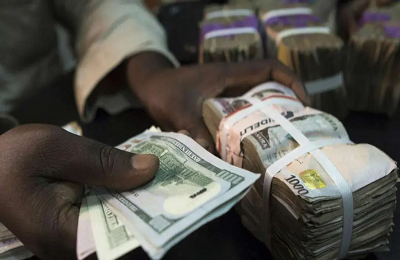WASHINGTON D.C. – A storm is brewing for millions who rely on money sent home from the United States. The U.S. House of Representatives has passed a bill proposing a new 3.5 percent US remittance tax. This tax would hit money sent by all migrants—including those with green cards, temporary workers, and undocumented immigrants—to their home countries. If enacted, this legislation targeting roughly 40 million non-U.S. residents could send shockwaves across the globe.
“This bill, if enacted, will disproportionately affect developing countries that rely heavily on diaspora remittances,” warned economic analyst Thomas Eke. For Nigeria, the hit could be staggering: an estimated loss of around $215 million each year. This is a serious blow for an economy already grappling with foreign exchange difficulties. The proposed US remittance tax is, therefore, a major point of concern.
Lifeline Under Threat: Nigeria’s Remittance Dependency and the US Remittance Tax
For many developing nations, money sent home by citizens abroad is more than just extra cash; it’s a financial lifeline. In 2023, Nigeria saw over $20 billion flow in through remittances. That figure climbed by 9% to an impressive $20.9 billion in 2024. “These funds are not luxury,” emphasized Lagos-based financial expert Bisi Adeoye. “They support families, pay for school fees, healthcare, and small business operations.”
The stakes are high. The Central Bank of Nigeria has even set a target to boost monthly remittance inflows to $1 billion. This goal highlights just how much the country depends on these transfers to keep households running and to help stabilize its currency. The potential fallout from the US remittance tax is, therefore, being watched with anxiety.
Global Tremors: Beyond Nigeria, Anxiety Mounts Over US Remittance Tax
The proposed US remittance tax isn’t just Nigeria’s worry. Alarm bells are ringing in other countries like Liberia and Sierra Leone, which also lean heavily on money sent from abroad. They too fear serious economic damage. “This isn’t just about Nigeria. It’s about millions of families across the Global South,” stated Kennedy Mensah, a remittance lobbyist fighting the measure in Washington, D.C.
The numbers underscore the reliance: in the first four months of 2025 alone, Nigeria recorded $328.76 million in remittances, showing these funds remain a vital pipeline. Unsurprisingly, migrant groups within the U.S. are beginning to mobilize against the bill, decrying it as “economic injustice disguised as domestic policy.”
By Kayode Ojo








